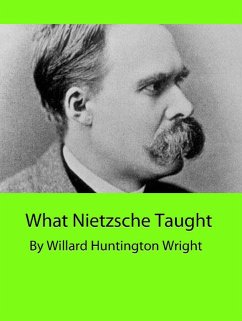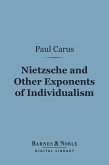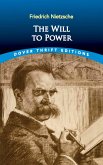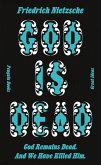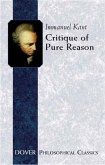It is no longer possible to ignore the teachings of Friedrich Nietzsche, or to consider the trend of modern thought without giving the philosopher of the superman a prominent place in the list of thinkers who contributed to the store of present-day knowledge. His powerful and ruthless mind has had an influence on contemporary thought which even now, in the face of all the scholarly books of appreciation he has called forth, one is inclined to underestimate. No philosopher since Kant has left so undeniable an imprint on modern thought. Even Schopenhauer, whose influence coloured the greater part of Europe, made no such widespread impression. Nietzsche has penetrated into both England and America, two countries strangely impervious to rigorous philosophic ideals. Not only in ethics and literature do we find the moulding hand of Nietzsche at work, invigorating and solidifying; but in pedagogics and in art, in politics and religion, the influence of his doctrines is to be encountered. The books and essays in German elucidating his philosophy constitute a miniature library. Nearly as many books and articles have appeared in France, and the list of authors of these appreciations include many of the most noted modern scholars. Spain and Italy, likewise, have contributed works to an inquiry into his teachings; and in England and America numerous volumes dealing with the philosophy of the superman have appeared in recent years. In M. A. Mügge's excellent biography, "Friedrich Nietzsche: His Life and Work," there is appended a bibliography containing 850 titles, and this list by no means includes all the books and articles devoted to a consideration of this philosopher's doctrines.
In this regard one should note that this interest is not the result of a temporary popularity, such as that which has met the philosophical pieties of Henri Bergson. To the contrary, Nietzsche's renown is gaining ground daily among serious-minded scholars, and his adherents have already reached the dimensions of a small army. But despite this appreciation there is still current an enormous amount of ignorance concerning his teachings. The very manner in which he wrote tended to bring about misunderstandings. Viewed casually and without studious consideration, his books offer many apparent contradictions. His style, always elliptic and aphoristic, lends itself easily to quotation, and because of the startling and revolutionary nature of his utterances, many excerpts from his earlier works were widely circulated through the mediums of magazines and newspapers. These quotations, robbed of their context, very often gave rise to immature and erroneous judgments, with the result that the true meaning of his philosophy was often turned into false channels. Many of his best-known aphorisms have taken on strange and unearthly meanings, and often the reverse of his gospel has gained currency and masqueraded as the original canon.
In this regard one should note that this interest is not the result of a temporary popularity, such as that which has met the philosophical pieties of Henri Bergson. To the contrary, Nietzsche's renown is gaining ground daily among serious-minded scholars, and his adherents have already reached the dimensions of a small army. But despite this appreciation there is still current an enormous amount of ignorance concerning his teachings. The very manner in which he wrote tended to bring about misunderstandings. Viewed casually and without studious consideration, his books offer many apparent contradictions. His style, always elliptic and aphoristic, lends itself easily to quotation, and because of the startling and revolutionary nature of his utterances, many excerpts from his earlier works were widely circulated through the mediums of magazines and newspapers. These quotations, robbed of their context, very often gave rise to immature and erroneous judgments, with the result that the true meaning of his philosophy was often turned into false channels. Many of his best-known aphorisms have taken on strange and unearthly meanings, and often the reverse of his gospel has gained currency and masqueraded as the original canon.
Dieser Download kann aus rechtlichen Gründen nur mit Rechnungsadresse in A, B, CY, CZ, D, DK, EW, E, FIN, F, GR, H, IRL, I, LT, L, LR, M, NL, PL, P, R, S, SLO, SK ausgeliefert werden.

